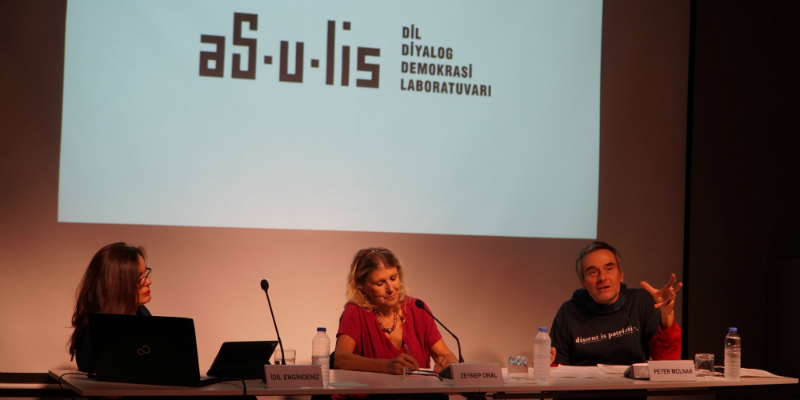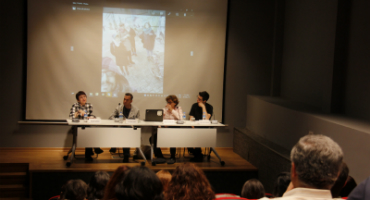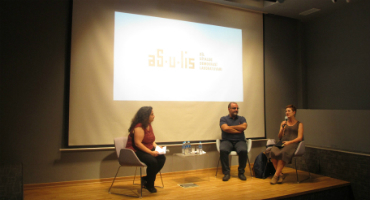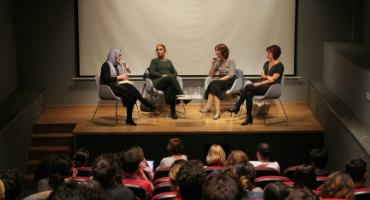Organized by Asulis Discourse, Dialog and Democracy Laboratory under the auspices of Hrant Dink Foundation, 'Similar Discourses, New Methods in Turkey and Europe: Countering Hate Speech through Art and Performance' panel discussion was held in Havak Hall of Anarad Hığutyun Building on Monday, October 23, 2017. Moderated by Zeynep Oral, who is a writer, journalist, theatre critic, cultural editor, feminist, peace activist, lecturer, columnist for Cumhuriyet daily, and President of PEN Turkey, the panel discussion was held with the participation of Peter Molnar, who is Research Affiliate on Freedom of Speech at the Center for European Enlargement Studies at Central European University where he was one of the founding researchers of the Center for Media and Communication Studies in 2004 and a former member of the Hungarian Parliament (1990-1998), a writer, slammer, voluntary radio host, participatory theater director and activist; and İdil Engindeniz Şahan, who works at Faculty of Communication of Galatasaray University and works on issues such as media representation, hate speech, and murders of women in collaboration with a number of civil society organizations and also studies acting at Şahika Tekand Studio Players.
Zeynep Oral started with an opening speech on witnessed damages and catastrophe in Turkey as a result of hate speech. Oral said that ethnic, religious, racial, sexual separatism leads to hatred and hatred always accompanies by violence in different forms of violence. At this point, she emphasized that all art forms, especially theatre can be used as a mirror, as a micro cosmos of life itself because theatre since ancient Greek has been the platform of politic arena and can be used educational tool, means of social change and as a healing process. Then, she finished her opening speech by addressing a question: “Can we counter the hate speech through theater, through art and through performance?”
After moderator Zeynep Oral’s opening speech, Peter Molnar highlighted the important of art especially participatory art which is the most powerful mean we have to counter so called hate speech according to Molnar. He also suggested cautions about the definition of hate speech and he explained why he uses the term hate speech by adding “so called”. He emphasized why we would be careful with any content based definition of so called hate speech especially when it comes to authorizing or government to use the heaviest legal mean, criminal law to restrict freedom of speech. At the end of his talk, Peter Molnar and his student Aslı Karaca from Central European University put in performance of the “Hate Speech” Monologue which is invented and delivered by Peter Molnar in his course at CEU to test students’ ideas in reality and to show that there is an option for an artistic response to “Hate Speech”.
The second speaker İdil Engindeniz Şahan underlined the importance of the participation of the public within/with art. She emphasized the role of “Theatre of the Oppressed” of Auguste Boal to struggle against hate speech by touching the public with art. Talking about the problem of using hate speech in our daily life, Şahan started her talk by addressing a question: “How the theatre can make us aware about our attitudes?” Then, Şahan concluded her speech by expanding on the stages of the poetics of the oppressed.





